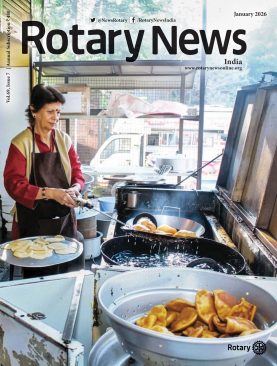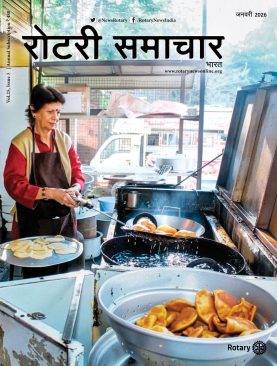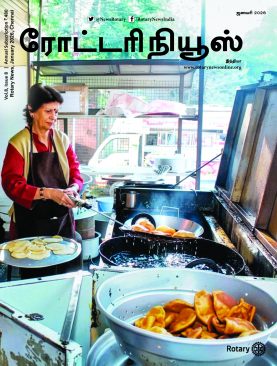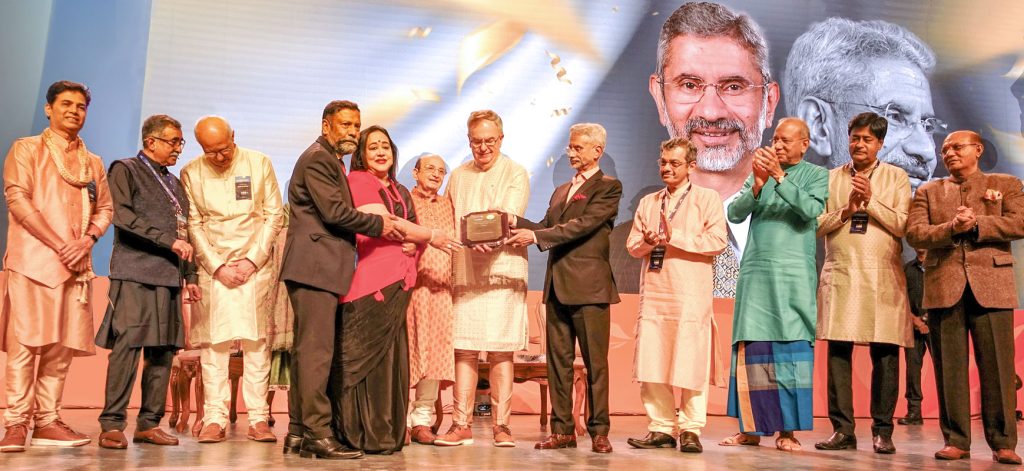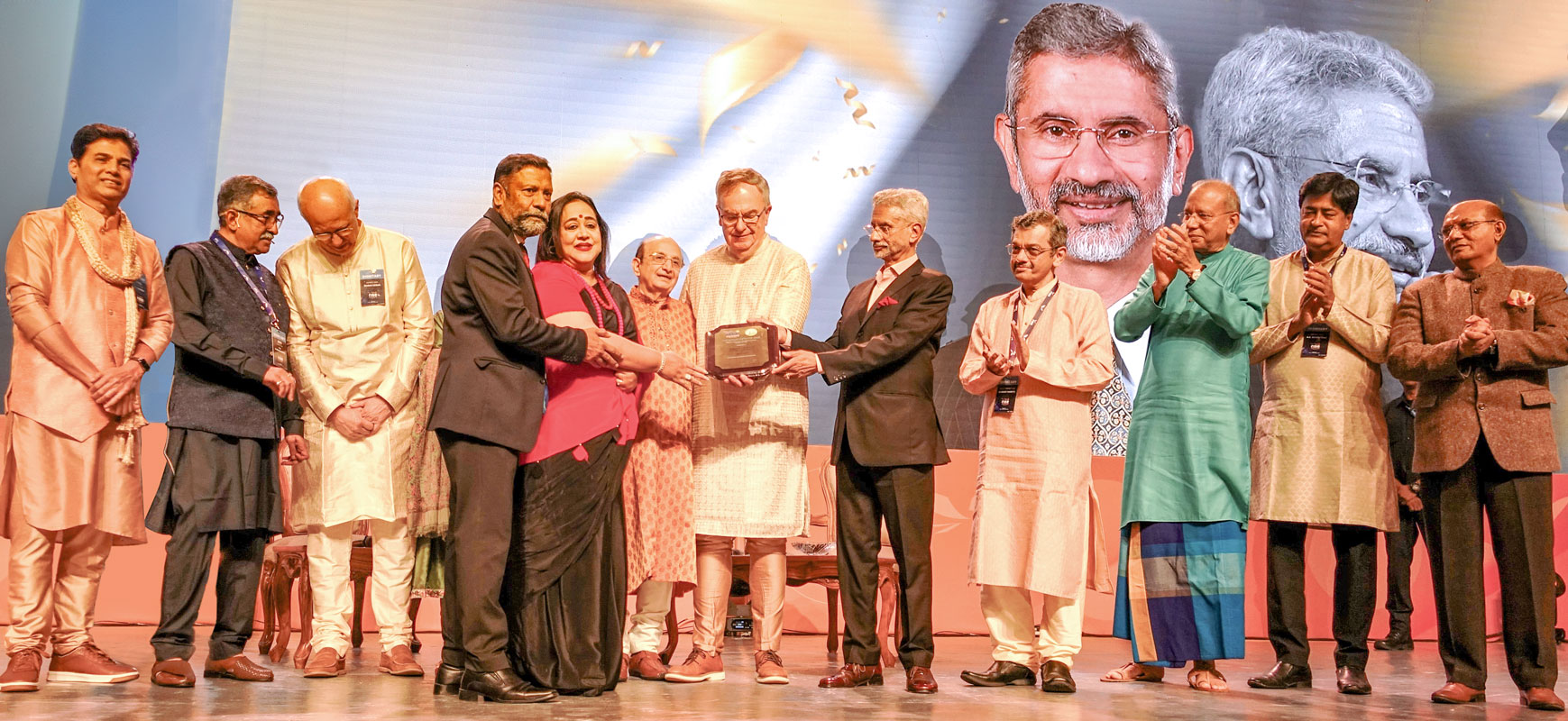
It was a picture of a resurgent India — with a buoyant economy, increasing self-sufficiency in a range of fields from food security to water and electricity connections in millions of more homes — that External Affairs Minister S Jaishankar painted at one of the most interesting sessions of the zone institute RISE in Bengaluru.
Enumerating the major changes that have happened in India in the last decade, and the way these have impacted our neighbours and the entire world, he said, “It’s often easier to speak about what lies ahead, but I want to speak about what is behind us in the last decade as that is the foundation of what lies ahead of us in the next quarter century.”
Saying that there is a “direct connection between our achievement, capabilities, aspirations and dreams,” he said the rapidly changing and progressing India showed “what we are capable of when we have the leadership, drive and motivation. Today when the world sees India as a stronger country, it wants to know what has happened and why.”
Listing out the 10 big things that the last decade saw in India, Jaishankar said these “were a mix of challenges, opportunities and achievement in different domains, and represent all-round progress.”
While other countries said that they would first finish vaccinating their people before helping others, we were one of the few who shared our vaccines, even while we were vaccinating, and gave vaccines to 99 countries and two UN organisations.
— S Jaishankar, External Affairs Minister
The first big challenge was Covid-19, a “once in a century happening”. As one of the ministers in a small group from the Union cabinet appointed to oversee many Covid-related issues,
“I travelled around the world at a time travel was at a standstill. I saw first-hand the rapid response of the Indian public healthcare system. In the beginning, the challenge seemed completely overwhelming and yet within a few months, given the leadership and collective responsibility, we were able to deal with the crisis as a nation and build capacities at a very rapid pace.”
That was 2020; “2021 was the year of the vaccine, many other countries made the vaccine too, but the scale, quality and rapidity with which we made the vaccine was an unusual phenomenon. We not only manufactured but also invented a vaccine. Many countries at that time had a vaccine but not an organised system of vaccination… where India stood out. We were able to put 2.5 billion doses of vaccine in people’s arms largely because we had digitally organised ourselves.” This enabled people to walk in, get a shot and “by the time you returned, you had an image (certificate) on your phone!”
In the next phase, when the demand for medical oxygen was a huge challenge, so many different systems responded — industry, Railways, Air Force, and the crisis was overcome. Also, “while other countries said that they would first finish vaccinating their people before helping others, we were one of the few who shared our vaccines, even while we were vaccinating, and gave vaccines to 99 countries and two UN organisations. It is only natural to help your neighbours but there were countries in the Caribbean, Pacific… far way and little countries, who till today tell you that we would not have got vaccines but for India.”

Coming to his own ministry, Jaishankar said the manner in which the G20 meet was handled was exemplary. “G20 is like a world cup of diplomacy where the 20 biggest and strongest nations come together and we also had nine other countries as guests and 14 international organisations. When we took up the G20 presidency, the world didn’t have too many expectations.” But the way we as organisers navigated our way around contentious issues such as the Ukraine war, “the very deep anger in the developing world — Africa, Asia and Latin America — that their problems were being overlooked by Europe, and other divides and differences and found a common ground for countries that were arguing among themselves and had positions difficult to reconcile, was commendable. I’d say G20 has been the diplomatic achievement of this year.”
And not just because “we could get everybody to agree but because we could get the most powerful countries, including ourselves, to show a new commitment to getting sustainable development, promoting green growth, ensuring that international institutions like the World Bank and IMF would lend more prolifically.”
The other big factor of this decade, said the minister, was the digital infrastructure India has put together which has become “the backbone on which services are delivered and benefits given, on which you get your entitlements and your Covid certificate. This digitalisation has created the transformation of India.”
Our hand extended to Sri Lanka at its darkest moment made a critical difference, and showed that India is always there for its neighbours.
— EAM Jaishankar
This includes creation of a food support system which is bigger than the population of Europe and North America; it has connected people to banking; 10 years ago, one-third of Indians were out of the banking system. Gas, electricity and water connections were given to millions of people, farmers who needed extra benefits were given those. “In 10 years, gas cylinders have been given to a population bigger than that of Germany, houses built for a population bigger than that of Japan,” he added.
Similarly, the extent of social benefits was staggering; While the Ayushman Bharat Health Scheme covers 500 million people, food support is given to 800 million, the Mudra loans to 415 million, banking facilities to 450 million, and water connections to 100 million new houses, which means 500 million people.
Next, India is admired for the talent and skills of its people. “The single achievement that has imprinted itself on the conscience of the world is the successful execution of the Chandrayaan mission. That is impactful of course, but there are so many other changes. Yesterday, the Sultan of Oman paid us a state visit and was fascinated by both our space programme and drones. We have created a drone policy for both business and other applications. Today drones are being used in farms to help farmers with land surveys and other facilities, and also to help secure our borders.”
In multiple ways, things were changing. Take the issue of passports, for example. Ten years ago, you could get your passports from only 77 places; today you can do so from 527 spots. “That increase of 450 did not come from new buildings; we repurposed post offices and postal employees. Every day in India two colleges open, and every week a new university!”
With all this, India and Indians were getting ready for the global workspace and Indian talent, skill and creativity will be in demand across the world, Jaishankar said. “Many countries that hitherto were cautious about people from India coming there, are today actively seeking us out to reach agreements. In last one year I have signed agreements with Germany, Austria, Australia, Portugal and Italy for the mobility of people. Indian talent today is in demand across the world but we can make a global impact only if we do our homework, prepare that talent and give them opportunities. And that is happening through starting more schools, building toilets, and encouraging the education of girls. This socio-economic transformation of India is really going to propel us in the next 25 years.”
Of course, there are challenges; at our borders and from our neighbours, but these are being handled, he said.
Summing up, he said that this overall and rapid transformation of India had been possible thanks to proper leadership right at the top. “The moment we get the right leadership, motivate ourselves and work collectively, we are able to surprise even ourselves by the extent of our achievements.”
Even the countries around us had benefitted, he said, giving the example of Sri Lanka which had gone into “a very deep economic crisis and while the rest of the world, including institutions which are supposed to respond to such crises, were debating what to do, India stepped forward. Our hand extended to Sri Lanka at its darkest moment made a critical difference, and showed that India is always there for its neighbours. And the message resonates beyond our neighbourhood. Today India’s footprint is there in 600 projects across 78 countries in the world. Our doctors, social organisations, businesses have gone to far corners of the world.”

PRIP K R Ravindran thanked Jaishankar and the Indian government for its help during its economic crisis, and sought his advice on Rotarians’ difficulty in navigating tricky global situations in places such as Ukraine or Gaza. Jaishankar said that when the Ukraine conflict started, India brought back 19,000 students who were there, and did much more. One story which really didn’t get much traction was how so many Indian organsiations went there to help especially with the refugees; “they ran soup kitchens, and helped the refugees coming out in so many ways. I understand navigation in a polarised situation is not easy. But if you are well established and have a track record, even in a difficult situation you can make a difference…. if there is anything I can do for you, give me a shout.”
Responding to another question from RIPN Mario de Camargo, who hails from Brazil, on the future of BRICS, the EAM said, “I think it will grow, gain in influence and even members; we have agreed to expand BRICS by six more members the next year we meet.” It would grow because the domination of only some countries would end, and BRICS is giving a clear message that “look, we are here and the world is a very diverse place, and cannot be run only by a few countries.”
To a question from TRF vice-chair Bharat Pandya on when Indians would be allowed to travel visa-free in more countries, Jaishankar said it was already happening. Recently Thailand and Malaysia had started giving visa-free entry to Indians. “This will grow when we ensure that the mobility is legal; that is why we are doing these mobility agreements with different countries.”
To a question on when India would become a developed nation, he quipped “Make sure you live for the next 25 years!” He added that India was definitely going places; “but we should not lose that momentum, or take our foot off the accelerator. A major part of reform is never compare yourself with your past, set yourself ambitious targets, and Prime Minister Narendra Modi has fired up the energy of this society and that will propel us forward.”
At the session, moderated by institute chair and RI director Raju Subramanian, Ravishankar Dakoju, from RC Bangalore, presented three cheques of ₹5 crore each to The Rotary Foundation. Accompanied by his wife Paola, he said with this amount of ₹15 crore, he was completing 50 per cent of the sum of ₹100 crore he has pledged to the Foundation. While ₹5 crore of this money will go for service projects in Nigeria, ₹5 crore will be used for projects in Bangladesh and the remaining ₹5 crore for work in India.
Pictures by Rasheeda Bhagat
A resurgent economy
With broad brush strokes, EAM Jaishankar painted a picture of the emergence of India as a global economic giant. “There is talk across the world about India being a bright star in the global economy. And with good reason. We had two quarters of an extremely impressive growth rate — 7.6 per cent in the last one.” Reeling off numbers, he said in the last decade we have moved from the 10th to the 5th place in world economy; “the flow of foreign investment has doubled, exports have gone up by 75 per cent, food grain production is up, and 135 million people — more than the population of Japan — have come out of extreme poverty.”
All this had happened despite Covid “thanks to the right decisions during a period of extreme stress and a combination of policies coming together to create this new economic momentum.” It had become easier to do business, thanks to the de-bureaucratisation, a national logistics and infrastructure policy called Gati Shakti, a strong and sustained support to the farming sector, and a very committed campaign to promote Make in India. “Each one of them may look different, but its totality is giving us the tailwind with which the Indian economy is forging ahead.”
Jaishankar told the Rotarians that most of them would be flying; “how many of you know that in the last 10 years the number of airports in this country have doubled, from 75 to 150 and cities with metros gone up from five to 20? Look at the expansion of the highway system; we see the change but take it as a given, but when the world sees a country of this size moving with this rate of transformation, it is taken very seriously.”
The UN is getting less and less effective
A question at the zone institute that got an interesting response from External Affairs Minister S Jaishankar was when would India get a permanent seat in the UN. The problem, he said, was that “the UN is like an old club with a set of members who do not want to let go of their grip and want to retain control over the club. They do not want to admit more members, as they are not too keen to have their practices questioned. In a way it’s a human failing but today I think this is harming the world, because on key issues confronting the world, the UN is getting less and less effective.”
He added that the global sentiment was such that if “you ask the 200 countries of the world do you want reform or not, a very large number will say ‘Yes, we want reform’.”
The fact remained that the UN was established with a membership of only about 50 countries. “Imagine a business that has grown four times and yet you do not want to change the original promotor of that business. It is not fair and I think there is a realisation of that. I am sure it will happen, we will keep at it and I am sure that history is on our side here,” he added.

